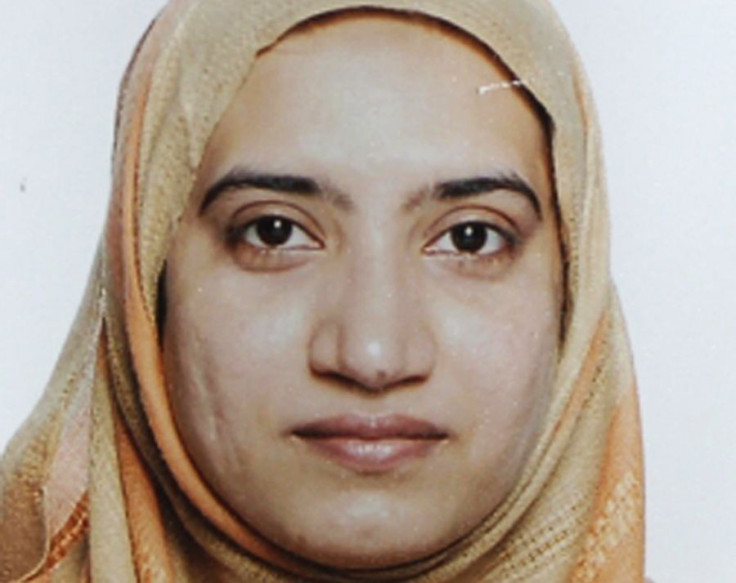San Bernardino Shooting: Tashfeen Malik Messaged Pakistani Friends On Facebook Pledging Support For Jihad

Tashfeen Malik, one of the shooters involved in the San Bernardino, California, attack earlier this month, had sent at least two private messages on Facebook to some of her Pakistani friends in 2012 and 2014, pledging support for jihad, the Los Angeles Times reported late Monday. The details come amid reports that the U.S. Department of Homeland Security will begin screening social media posts of applicants trying to enter the United States with a visa.
According to the new details, Malik told her friends that she hoped to join the fight for Islamic jihad. The messages, which were described by one law enforcement official as “her private communications … to a small group of her friends,” were posted before she entered the U.S. on a K-1 fiancée visa in July 2014. The official reportedly said that the messages “went only to this small group in Pakistan,” adding that they were written in Urdu, the official language of Pakistan. A second official told the LA Times that Malik “expressed her desire” in one of the posts to become a jihadi in her own right.
As details emerged, concerns grew over the failure of U.S. law enforcement and intelligence agencies to track warnings on social media that Malik was a potential threat. Authorities recovered the messages while investigating details about the 29-year-old and her husband, Syed Rizwan Farook, 28, both of who opened fire at the Inland Regional Center on Dec. 2, killing 14 people and injuring 20 others.
FBI officials are trying to determine whether Malik and Farook received any direct encouragement, financial support or specific instructions from overseas terrorist organizations before they carried out the deadly attack.
On the day of the shooting, Farook and Malik used Facebook to declare their allegiance to the Islamic State group, also known as ISIS. Authorities also suspect that Farook was in contact with people linked with at least two terrorist organizations, including al Qaeda-affiliated Nusra Front in Syria.
FBI believes that Farook and Malik were separately self-radicalized before they met each other through a dating website in 2013.
On Monday, FBI divers called off a search in a California lake at a public park, about 2.5 miles north of the attack site, after no credible clues linked to the shooting were found.
“At best it was a hunch that something was in there,” one official reportedly said Monday, adding that the search was carried out after authorities received a tip that the couple was seen by the lake on the day of the shooting.
FBI agents working to determine the motive behind the assault are also interviewing Farook’s former neighbor and friend, Enrique Marquez, who reportedly gave the couple two rifles that he had legally purchased. Marquez also admitted to authorities that he and Farook had planned to carry out an attack in Los Angeles in 2012, but later dropped their plan.
No charges have been filed against Marquez yet, as pressing criminal charges against him would cut off “any opportunity to let him lead investigators to any other persons or to an organization with whom he may be or may have been in contact with in the furtherance of the San Bernardino attack or other planned terrorist attacks,” one official told LA Times.
© Copyright IBTimes 2024. All rights reserved.




















